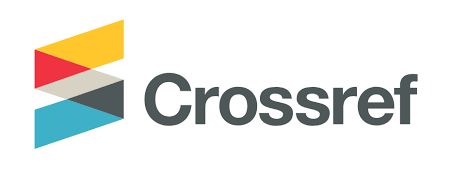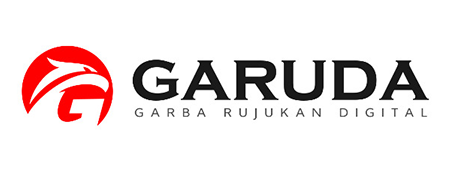POTENSI PENGEMBANGAN KAUM MILENIAL MELALUI EKONOMI KREATIF DENGAN PENGUATAN KEWIRAUSAHAAN PADA SMAS BATARA KABUPATEN GOWA
Keywords:
Creative Economy, Digital Economy, Entrepreneurship, Economic Development, MillennialsAbstract
This article discusses the potential for SMAS Batara, Gowa Regency, to foster the development of the millennial generation through the creative economy and entrepreneurship. The creative economy is a novel economic concept that emphasizes the role of information, creativity, and human resources in the production and growth of the economy. Utilizing extant knowledge, cultural heritage, and technology, the creative economy can contribute significantly to the national economy and generate value. Good planning and organization, government support, the creation of jobs, and research and development can all contribute to the growth of the creative economy. Human resources play a crucial role in the creative economy, and their development is possible through education, training, and the application of technology. Generation Y has the potential to fuel economic growth through the creative economy, and their participation can be encouraged through education, support, empowerment, and the development of creative ecosystems. The implementation of seminars and similar activities can help millennials develop their entrepreneurial skills and knowledge, allowing them to participate actively in the economy. However, students' understanding of the creative economy is still deficient. Economic and entrepreneurship education must be enhanced in order to foster creativity and innovation among students. In the creative economy, millennials must develop skills, innovate, create networks, prioritize sustainability, become entrepreneurs, take risks, and leverage technology.
Downloads
References
Adha, E., & Permatasari, C. L. (2021). Peran Pendidikan Kewirausahaan Dalam Menumbuhkan Kesiapan Berwirausahaa Siswa. Jurnal Pendidikan Ekonomi: Jurnal Ilmiah Ilmu Pendidikan, Ilmu Ekonomi, Dan Ilmu Sosial, 15(1), 60–71. https://doi.org/10.19184/jpe.v15i1.21158
Agit, A., Yunus, S., & Syukri, F. (2023, May). PERAN DAN KONTRIBUSI TEKNOLOGI DALAM MENUNJANG POTENSI EKONOMI MASYARAKAT DI WILAYAH PEDESAAN. In Seminar Nasional Pariwisata dan Kewirausahaan (SNPK) (Vol. 2, pp. 263-271).
Hasan, M. (2018). Pembinaan Ekonomi Kreatif Dalam Perspektif Pendidikan Ekonomi. Jurnal Ekonomi Dan Pendidikan, 1(1), 81–86. http://ojs.unm.ac.id/JEKPEND
Insana, D. R. M., Suseno, I., & Yolanda, Y. (2022). Minat Wirausaha Mahasiswa Berbasis Ekonomi Kreatif di Masa Pandemi Covid 19. Sosio E-Kons, 14(1), 45–53. https://doi.org/10.30998/sosioekons.v14i1.12058
Malihah, N., & Achiria, S. (2019). Peran Ekonomi Kreatif Dalam Pemberdayaan Industri Kerajinan Bambu. Maqdis: Jurnal Kajian Ekonomi Islam, 4(1), 69–78.
Masruroh, N., & Suprianik, S. (2023). Peran Pemerintah Dalam Pengembangan Potensi Desa Melalui Pendidikan Ekonomi Kreatif. Global Education Journal, 1(2), 73–85.
Murni, S., & Rekha, R. (2021). Analisis Peran Ekonomi Kreatif Dalam Peningkatan Pendapatan Pengrajin Ditinjau Dari Ekonomi Islam (Studi Pada Industri Bordir Kecamatan Indrajaya Kabupaten Pidie). JIMEBIS – Scientific Journal of Students Islamic Economics and Business , 2(1), 25–34. https://doi.org/10.22373/jimebis.v2i1.194
Noni, S., Rijal, S., Kartini, E., Ridwan, M. S., Afiat, M. N., Nurmahdi, A., ... & Astuty, S. (2023). EKONOMI KREATIF: STUDI DAN PENGEMBANGANNYA. Penerbit Tahta Media.
Rahmi, A. N. (2018). Perkembangan Industri Ekonomi Kreatif Dan Pengaruhnya Terhadap Perekonomian Di Indonesia. Seminar Nasional Sistem Informasi, 9, 1386–1395.
Sari, N. (2018a). Pengembangan Ekonomi Kreatif Bidang Kerajinan Tradisional Jambi (Studi Kasus : Rengke Suku Anak Dalam). Jurnal Manajemen Terapan Dan Keuangan, 7(2), 138–148.
Sari, N. (2018b). Pengembangan Ekonomi Kreatif Bidang Kuliner Khas Daerah Jambi. Jurnal Sains Sosio Humaniora, 2(1), 51–60.
Supian, R., & Hukom, A. (2023). Potensi Ekonomi Kreatif Dalam Mengatasi Pengangguran Di Provinsi Kalimantan Tengah. Jurnal Publikasi Sistem Informasi Dan Manajemen Bisnis (JUPSIM), 2(2), 208–220.
Downloads
Published
Issue
Section
License
Copyright (c) 2023 EJOIN : Jurnal Pengabdian Masyarakat

This work is licensed under a Creative Commons Attribution-ShareAlike 4.0 International License.









